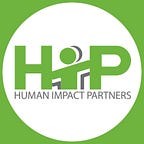Listen, Love, and Build Power: 3 Things I Learned at the Equity Summit
By Martha Ockenfels-Martinez
Three weeks ago 4,000 people from around the country gathered in downtown Chicago to talk policy and equity, race and power. I was there too— representing Human Impact Partners, and as a member of the Public Health Awakened Delegation.
While I was excited to be back in the Midwest and to see some of the big-name headliners of the conference, I had a few reservations: Would there be a strong “preaching to the choir” vibe? Would the fast-paced conference schedule be too overwhelming? Would my FOMO manifest in reality (i.e. would I miss the best sessions?). Within the first 5 minutes of the opening conference plenary my doubts disappeared and I fell into a deep awe. This was exactly where I needed to be — as a woman of color, as a health advocate, and as a research and policy nerd. Three days later I walked away from the experience feeling overjoyed and fulfilled.
I took away 3 major reflections of my experience that I want to incorporate into my work as a public health researcher and advocate:
1. Listen Up and Tell Their Stories.
“If you ignore the plight of those who are most vulnerable you do it at the peril of the nation,” PolicyLink President Angela Glover Blackwell stated in the opening plenary. Shortly thereafter Edna Chavez, a high school student leader from South Central Los Angeles, gave us direct instructions on how to support the fight of those whose lives were affected by gun violence. Her first piece of advice: “Don’t stop telling our stories. Don’t forget about us,” and her second: “Reach out, not just in south LA, but everywhere.” Listening is power. Being listened to is power. Telling stories is power.
Connecting to communities on the front lines is essential for public health if we are going to stay relevant and if we are going to regain the trust of community. Taking the lead from these same communities is crucial if we want to see the changes needed to create a world where all people get to live healthy, fulfilled, lives.
2. Lead with Love.
The tone of the plenaries and the speakers throughout the conference was seeped in love. Love for the people, love for each other, and love for our future liberation. As Dr. Manuel Pastor advised during the Summit: “The right is hating on all of us, so we gotta love all of us.” And love is what I felt pouring out of the Summit, oozing out of every well-curated plenary speech.
It was an important re-centering for me, as someone with a lifetime of reminders of how deep health inequities have cut into the people I love. It reconnected me to my intention to lead with love, an intention I set for myself sometime in the wake of my friend’s jail-assisted-suicide 3 years ago. It’s a difficult goal to keep this intention as my priority — there’s a lot of hurt in this world and there are days I wake up angry and there are days I stay angry. And there are days I can’t sleep because my mind spins thinking of all the ways systemic oppression keeps hurting people. As my chiropractor recently reminded me, holding onto anger is “like drinking poison and expecting it to kill the other person” (she offered this up because the days I let the anger stew it settles in my bones). The anger hurts me and it hurts us all in the movement — so I’m going to keep coming back to leading with love even when it’s difficult.
3. Relationships Build Power.
As I witnessed at the Summit, our collective has the power to change the narrative, to flip the script, and to create health, wellness, and joy for everyone. To strengthen this collective power for structural change, I need to keep building cross-country and cross-sector relationships. As a researcher, I often get caught up in the never-ending quest of knowledge-gathering and fact-checking. Its hard for me to admit, but I must acknowledge that even if I conduct research nonstop, I cannot know everything. No one person can. But, there is power in the knowledge and expertise I already possess. And one of the most useful ways of leveraging this power is to pour my lived experience and professional expertise into a giant web of greatness, because while not one of us has the whole answer to “how do we end racism?” or “how do we stop health inequities?” — the answer does exist in the collective.
Of all these lessons, the one that sings strongest to me is that of love. While I was at the conference I had the good luck to run into many wonderful community organizers from my hometown of Minneapolis. There was something quite special about being able to hug these people who I respect and love dearly — people who’ve seen me grow up and who also love me back. I’m thankful for each and every one of these special humans, and I’m grateful for the space the conference provided that guided me to these reflections.
Martha Ockenfels-Martinez is a Research Associate at Human Impact Partners. She supports the research needs of community partners across the country that are advancing equity and justice. She brings her background in local and state policymaking, community organizing, and advocacy to her work at HIP.
Martha lives in Oakland, and was born and raised in Minneapolis. She loves a good book, spending time with friends and family, and walking around the lake.
